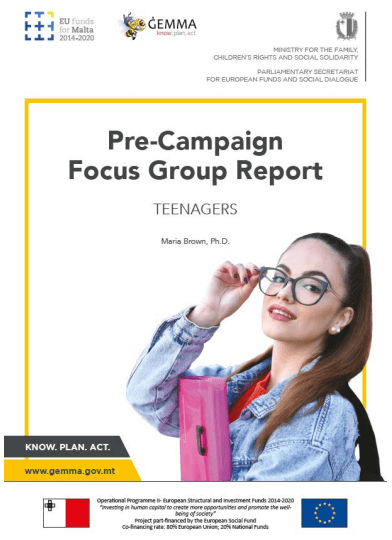ĠEMMA in 2019 launched an EU ESF co-financed financial capability directed towards 14 groups which were identified through consultation when the Retirement and Financial Capability Strategy (2017-2019) strategy was being drafted.
Teenagers are identified as a vulnerable group. Teenagers acquire financial capability skills from two sources. First, from education. The new curriculum introduced in 2012 led to the introduction of financial literacy as a cross curriculum subject in Primary School, and in mathematics and Personal Social and Career Development in Junior Secondary – Levels 7 and 8. Thereafter, financial literacy is taught to students following accounts and economics in Levels 9 to 11.
Secondly, through socialisation – where the key influencer is the family. It is a process which guides a teenager’s financial understanding and approaches to financial decisions. Parents who lack financial knowledge and skills are unlikely to model to their children sound financial decision-making. Young people from wealthier households, therefore, are more likely to get financial capability experience earlier in their lives.
At the age of 16 years, teenagers are likely to have their first bank account, a student card, and a cash card. Many teenagers today start working part-time at the age of 16 years earning their own money. ĠEMMA considers it important that to the extent possible teenagers have a good understanding of the following core skills – budgeting, debt, having a safety net, and planning for the future. The last one is perhaps the hardest financial capability skill for a teenager to acquire: behavioural heurestics kick in when setting goals for the long term when 16 or 17 years of age. Or the other hand, establishing financial planning for the short term – such as the first holiday on their own or purchasing a car – is realisable as the goal set is realisable within a short period.
In preparing its education awareness campaign for teenagers research was carried out. This research was carried out by Dr Maria Brown on behalf of our contractor.

The research concludes:
- Representatives of this cohort exhibited a relatively sophisticated extent of financial literacy and capability – particularly to satisfy communication, study and mobility requirements, such as use of home-made lunches, budgeting and saving.
- Despite their young age, focus group participants manifested interest in retirement years, yet very little knowledge of retirement capability.




